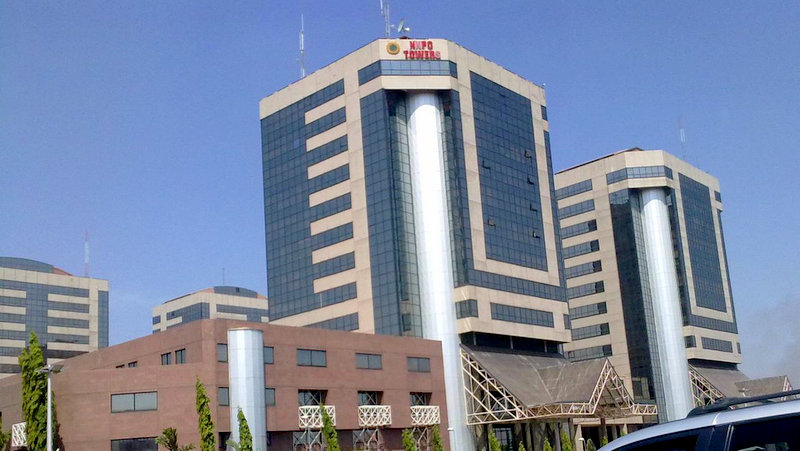
At the 2019 International Petroleum Conference held in London, recently, the Group Managing Director of the Nigerian National Petroleum Corporation (NNPC), Maikanti Baru, was reported to have copiously highlighted major investment opportunities not only in the Nigerian but the African oil and gas sector. He expressed great optimism on the positive outlook of the continent’s oil and gas business sector. He noted that $194 billion worth of investment could be deployed between 2018 and 2025 into 93 upcoming oil and gas fields in Africa, with Nigeria accounting for $48.04 billion or about 24.8 per cent.
Consequently, Nigeria, within that context, has investment opportunities in its oil and gas sector to the tune of a minimum of $48.04 billion.
According to Baru, “several new frontiers for exploration opportunities abound in Nigeria. He added that “offshore discoveries in the country (Nigeria) had mostly been limited to between 1000 and 1500 of water depths” and that investors are needed to test the new frontiers of ultra-deep waters.
Beyond highlighting investment opportunities that exist in Africa and of course, Nigeria oil and gas sector, Baru was candid enough to acknowledge that unless legal and regulatory uncertainties, lack of infrastructure, skilled manpower shortages, transparency challenges and accountability issues are addressed among stakeholders, the continent’s oil and gas industry might not achieve its full potential.
Baru’s forthrightness in fingering the major constraints to achieving a thriving and growing oil and gas sector in Africa must be commended.
It is not always that government officials and functionaries acknowledge economic and business drawbacks that are essentially occasioned or imposed, directly or indirectly, by the government and its agents. But lamentation that public officers know how to escalate in Nigeria is not a strategy for development.
There is no doubt that if obstacles placed by governments in Africa are removed, the oil and gas industry will witness investors’ patronage, perhaps, far beyond the expected $194 billion (Nigeria $48.04 billion) between 2018 and 2025.
The questions that seek answers from African governments are: in whose interest and for what purposes have the governments allowed the festering of the identified constraints by Baru? What, for instance, makes it difficult to redress the issues, for instance, of legal and regulatory uncertainties? Why is it that skilled manpower shortages cannot be taken care of through planned human capital development for this important industry? Why are bills sponsored for this governance, regulatory and legal framework stalled in the legislature in Nigeria? Why have investments though Petroleum Technology Development Fund (PTDF) set up since 1973 failed to develop manpower for the oil and gas industry in Nigeria?
Everything considered, the big announcement in London should not excite Nigerians. The concomitant details of the NNPC’s reform agenda in the context of the stalled Petroleum Industry Governance Bill (PIGB) that will not become law before the end of the 8th Assembly next month should attract even greater emphasis.
At this stage in the life and development of African countries, why are transparency and accountability issues still a bridge too far despite the generous mantra on ethical values and conduct? Are there no laws to deal with persons that inflict this unwholesome image on Africa and its constituent oil and gas producing countries?
NNPC boss, Baru may have correctly identified the key challenges, indeed, problems weighing against attraction of investments into the oil and gas sector but it must be pointed out that he tactfully used the phrase “key stakeholders” to avoid mentioning the specific persons he expects to address the industry’s problems. Granting his experience and long term exposure in the oil and gas industry, it would have been apt for him to have clearly pointed out the “key stakeholders” he would like to buckle up.
Notwithstanding the foregoing, Nigeria’s case is very pathetic. A situation whereby President Buhari, who also doubles as Petroleum Resources Minister, has not shown any interest in assenting to the (PIGB) that the National Assembly has long passed, clearly signals that the road to attracting desired and necessary investments into Nigeria’s oil and gas industry is still risky.
Unfortunately, the Nigeria’s leader is again not showing any sense of urgency in clearing the legal and regulatory uncertainties constraining attraction of investors to Nigeria’s oil and gas sector, despite his promises while campaigning for the office in 2015.
By now it must be obvious to the government of Nigeria that no matter how much it seeks for investors in the country’s oil and gas sector, no investor worth its name will take the high and uninsurable risk to invest in the industry while the PIGB remains in the president’s closet. That Bill, which has been acclaimed to have addressed the country’s problems in the oil and gas sector, needs to be signed into law for investors to find comfort to stake their funds.
Thus, instead of celebrating Nigeria’s potential in the oil and gas sector at international forums at all times, authorities in Abuja should organise functional collaboration with the National Assembly presiding officers and other key stakeholders to iron out grey areas in the PIGB so that it can become an acceptable law that can restructure the oil industry. That is the only way the oil and gas industry can be a veritable source of income and pride for the country. That will also send signals to citizens and indeed our partners that we are indeed serious with managing the economy, the only factor that can sustain democracy and development. That is the essence of economic democracy that is a desideratum in the new world where only good economic managers can ensure peace and stability in their domains.
END

Be the first to comment